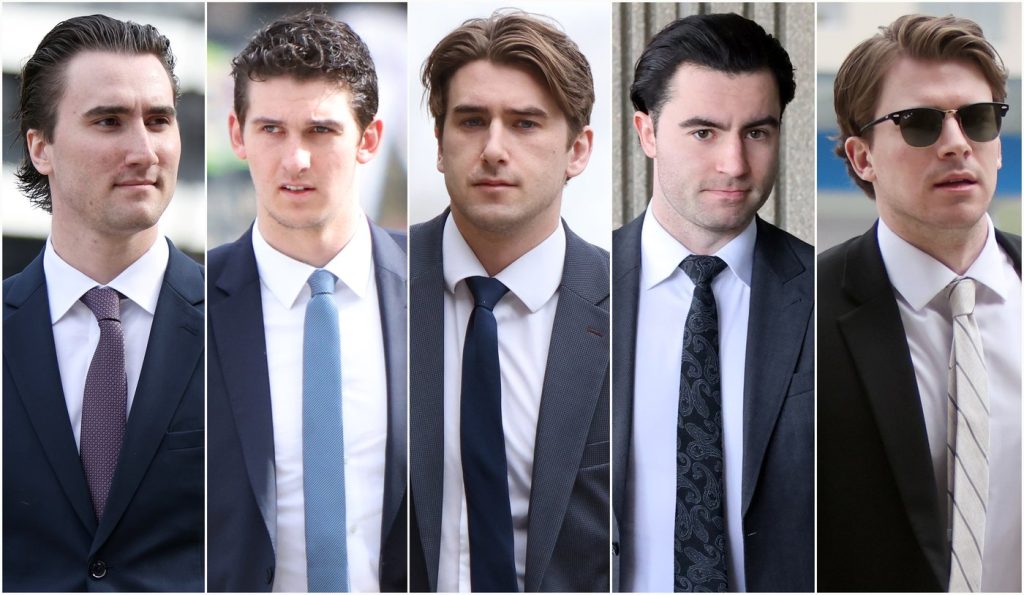LONDON The sexual assault trial involving five former members of Canada's World Junior Hockey Team is nearing its conclusion, with prosecutors expected to wrap up their closing submissions today. This high-profile case has garnered significant attention since it centers around serious allegations regarding the events that took place in a hotel room in London, Ontario, during the early hours of June 19, 2018.
Prosecutor Meaghan Cunningham delivered arguments on Thursday, emphasizing that the actions of the complainant should not be judged based on societal expectations or personal beliefs about how she should have behaved that night. The prosecution has maintained that the complainant did not provide voluntary consent for the sexual acts that allegedly occurred, arguing that the accused individuals failed to take reasonable steps to ascertain her consent prior to the incidents.
The defendants—Michael McLeod, Carter Hart, Alex Formenton, Dillon Dube, and Callan Foote—have all pleaded not guilty to the charges of sexual assault. Notably, Michael McLeod has also pleaded not guilty to an additional charge for being a party to the offence of sexual assault. The defendants’ legal teams made their closing arguments earlier in the week, focusing heavily on questioning the complainant's credibility and reliability as a witness.
The defence argued that McLeod, Hart, Formenton, and Dube engaged in consensual sexual contact with the complainant, attempting to undermine the prosecution’s claims of non-consensual acts. In contrast, Foote's lawyer asserted that his client did not engage in any form of sexual contact with the complainant. This differentiation in their legal strategies highlights the complexities of consent and the divergent interpretations presented in the courtroom.
As the trial progresses, Ontario Superior Court Justice Maria Carroccia is set to deliver her ruling on July 24, which will be a pivotal moment in this case. The outcome could have significant implications not only for the accused individuals but also for discussions surrounding consent, accountability, and cultural attitudes toward sexual assault.
This trial reflects broader societal issues, emphasizing the importance of understanding consent and the legal ramifications of sexual misconduct. As the proceedings unfold, they illuminate the tensions between the testimonies presented, the presumption of innocence, and the ongoing conversations about athletes, privilege, and their responsibilities.











